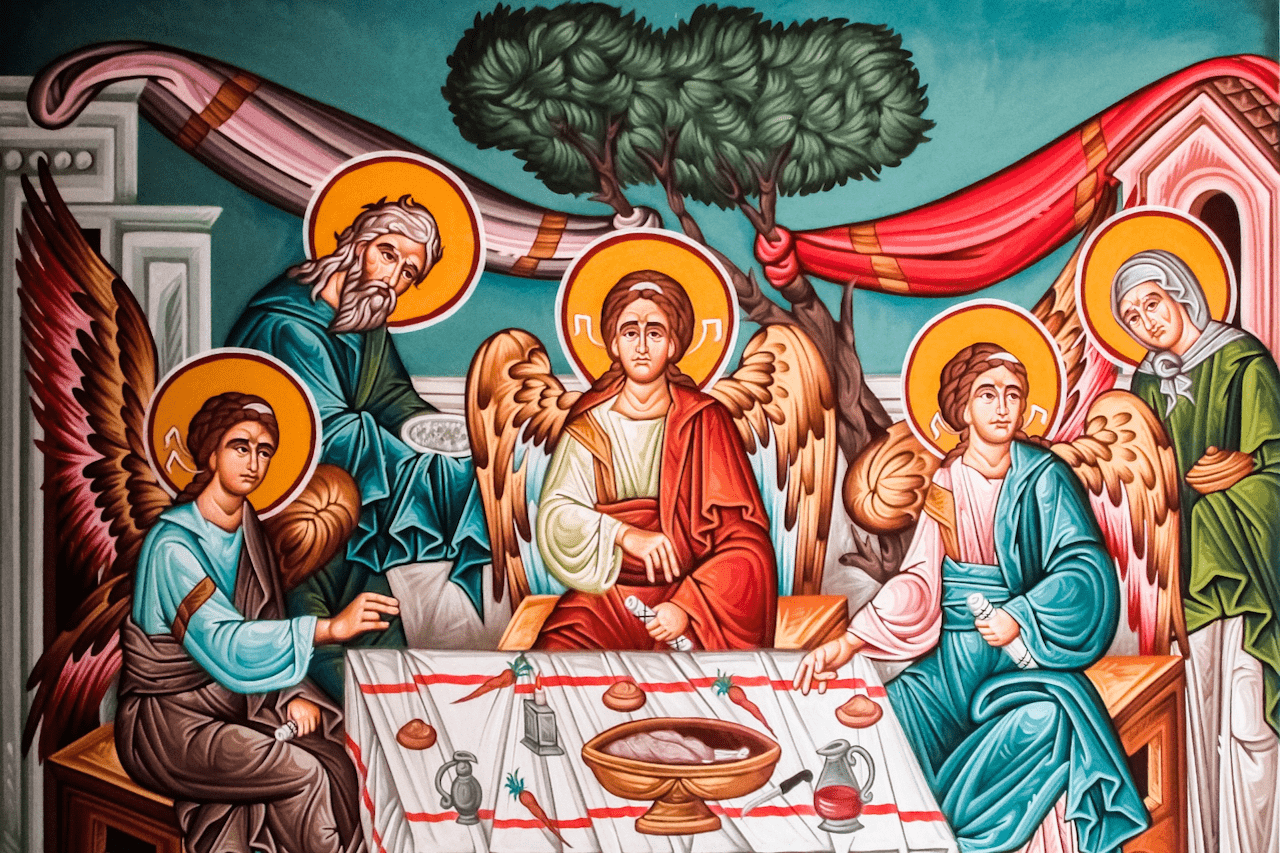Genesis 22: 1-2, 9a, 10-13, 15-18 (RM) or Genesis 17: 1-7, 15-16 (RCL); Psalm 116 (RM) or 22 (RCL); Romans 8: 31b-34 (RM) or 4: 13-25 (RCL); Mark 9: 2-10 (RM) or Mark 8: 31-38 (in the RCL for those who celebrated Transfiguration on the Sunday before Lent.)
This week the Gospel readings diverge between the RM and RCL, but both take the First Reading from Genesis and focus attention on Abram, or Abraham. Let’s sink our contemporary-theological teeth into Genesis 22 and begin by asking, “What kind of a God demands sacrifice?”
And more to the point, just what kind of a God demands that a father commit pre-meditated murder on a child, his own child, thinking that he is obeying a divine command? What kind of a father lies to his child to induce him to come along willingly on a journey, far from home, then goes through the motions of building an altar to sacrifice an animal — and then suddenly betrays the child?
Take a moment to imagine that you are young Isaac. What happens in that terrifying moment when you realize that the father you love and trust is about to slash you to death and burn your body on a rock? What do you feel when he takes the knife? When he lays hold of the trapped ram and kills it instead of you? How do you feel returning home with your father? Do you trust him, that night, the next week, the next year? Do you have nightmares the rest of your life?
Now take a moment to imagine you are Sarah, who saw her husband and son off when they went away together to perform a religious ritual. Is the horror of discovering what happened even fathomable? Do you ever trust this man again? Do you even have a choice?
Ironically, this story is a cornerstone of both Jewish and Christian discourse urging complete faith in God. The readings used on the Sundays of Lent in Year B bring out different aspects of the covenant, the “holy agreement” as a colleague of mine calls it, between God and God’s chosen people. A covenant built on trust.
Genesis 22 is also used as one of the readings at the Easter Vigil. In this context the paradigmatic story of Abraham’s near-sacrifice of Isaac is used to prefigure God the Father accepting the sacrifice of his only Son on the cross. If you interpret the theology of the crucifixion as atonement to the Father for the sins of humanity by the sacrifice and death of his only Son, the perfect victim, it actually makes a hideous sort of sense.
We can do better for the Easter Vigil.
For many years the U.K. organization Women Word Spirit (originally founded as the Catholic Women’s Network) arranged a women’s retreat from Holy/Maundy Thursday until Easter Monday at a lovely spacious old house, Noddfa Centre, in the steep hills near the seacoast in northern Wales. (“Noddfa” means “refuge” in Welsh.) The participants did all the planning and carrying-out of liturgies and meditative activities, from scratch, using natural symbols and whatever text and music resources they had brought along, for each day of the Easter Triduum.
One year I took part in the group planning the Vigil. We stumbled hard against the use of Genesis 22 … until … we thought of substituting Genesis 18: 1-15. This is the delightful story of Abraham entertaining three strangers who, upon departing, reward his hospitality by announcing that by the time they return, his elderly and infertile wife Sarah will have given birth to a son.
So Sarah laughed to herself, saying “After I grow old and my husband has grown old, shall I have pleasure?” The Lord said to Abraham, “Why did Sarah laugh, and say ‘Shall I indeed bear a child, now that I am old?’ Is anything too wonderful for the Lord? At the set time I will return to you, in due season, and Sarah shall have a son.” But Sarah denied, saying “I did not laugh” for she was afraid. The Lord said, “Oh yes, you did laugh.”
On Saturday evening for the Easter Vigil we were seated in a large oval in a dimly-lit meeting room. At the end of this reading, one participant suppressed a giggle, so did another, then a few more, until finally we were all guffawing out loud and could hardly stop. It was joyous, perfect and simply brilliant.
Maybe Sarah was present, laughing along.
© Susan K. Roll
This Reflection has been lightly revised from that of February 28, 2021.
Susan Roll retired from the Faculty of Theology at Saint Paul University, Ottawa, in 2018, where she served as Director of the Sophia Research Centre. Her research and publications are centred in the fields of liturgy, sacraments, and feminist theology. She holds a Ph.D. from the Catholic University of Leuven (Louvain), Belgium, and has been involved with international academic societies in liturgy and theology, as well as university chaplaincy, Indigenous ministry and church reform projects.





I love the remembrance that Sarah laughed. Caught in the tensions between a promised pregnancy, and the pragmatic knowledge that she was past child-bearing age, Sarah laughs. Then denies she laughed. (Because she was afraid.) Then hears God say “Oh yes, you did laugh.” A wonderful encouragement to me when my faith vacillates. Sarah laughs.